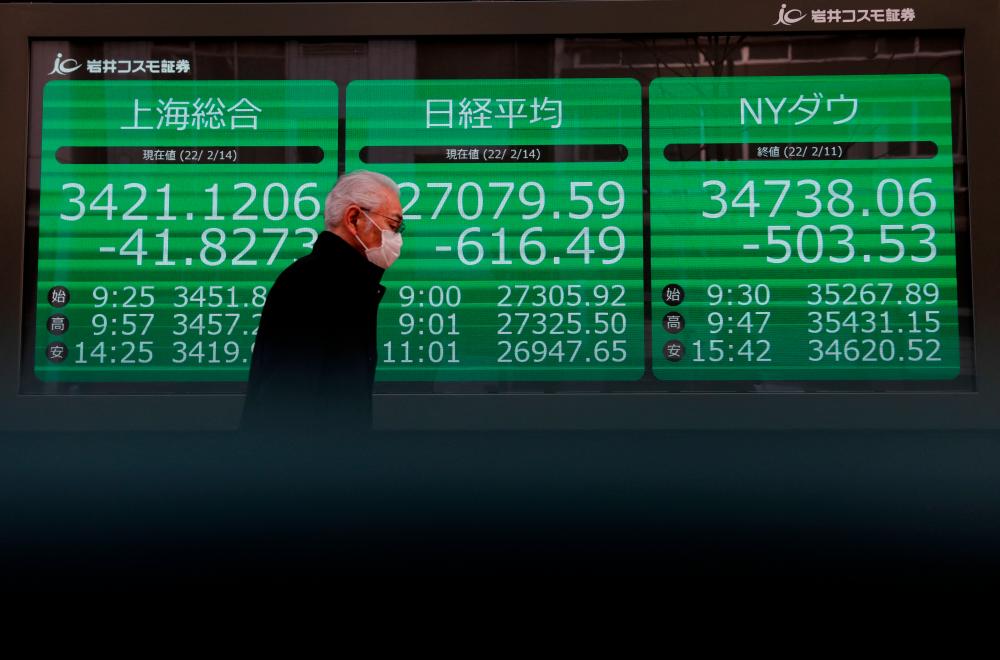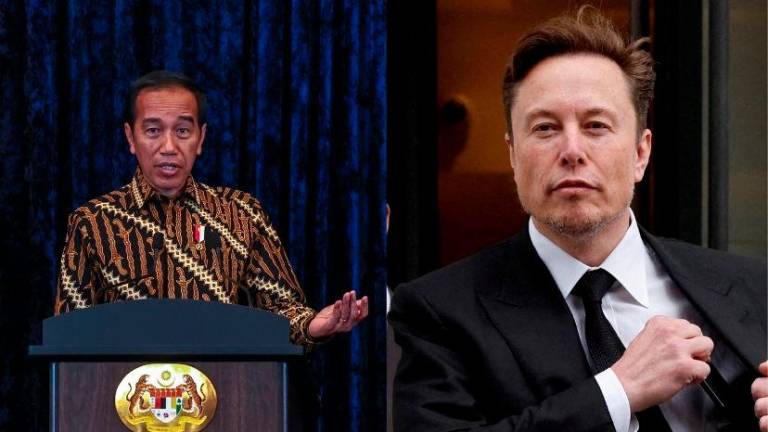PETALING JAYA: Asian equity markets tumbled yesterday as investors fled for cover after the United States warned that Russia could attack Ukraine within days, adding to concerns over inflation.
Investors are wondering what the escalating tensions surrounding the Russia-Ukraine conflict could mean for the financial markets.
Bank Islam Malaysia Bhd chief economist Mohd Afzanizam Abdul Rashid said it remains uncertain as to how the conflict would evolve.
“At the moment, we have heard the US claiming that Russia is ready to invade Ukraine. To some degree, it may feel like deja vu given that Russia has denied the allegation. A similar situation happened during the Iraq War in 2003 when the International Atomic Energy Agency indicated that they had not found any weapons of mass destruction.
“Whatever the outcome may be, the conflict zone represents an important equation in oil and gas supplies. So we cannot run away from possible disruption in oil supplies should the situation evolve into military aggression.
“Perhaps it could provide a boost to crude oil prices to reach US$100 (RM419) or more per barrel which then could have an important implication on inflation and how the central banks would react to it. In other words, risks of higher interest rates could rattle the markets as the central banks would want to anchor the inflation expectations,” he told SunBiz.
Socio-Economic Research Centre (SERC) executive director Lee Heng Guie said if a war were to break out between Russia and Ukraine, volatility would erupt in the global financial, foreign exchange and commodity markets.
“Risk-averse investors would seek shelter by moving into or buying safer assets – that is, flight to quality. This will increase demand for US Treasuries, the US dollar, Japanese yen and gold.
“Crude oil prices, which have already spiked up in recent weeks, partly reflecting uncertainty about the escalating tensions between Russia and Ukraine, will rise further to above US$100-125 per barrel if the conflict escalates into a war, followed by sanctions against Russia by the US and the European Union countries,” Lee told SunBiz.
He noted that Russia supplies 30% of Europe’s oil market and 35% of its natural gas. Russia and Ukraine are among the top five largest growers of wheat. Besides that, Russia exports a large quantity of industrial materials and minerals such as nickel, aluminium, platinum, steel, copper, and palladium. The prices of these commodities are expected to surge due to supply disruptions.
“The consequences of an escalation in crude oil, commodity and industrial materials prices would worsen the already-high business costs and consumer inflation.
“Russia-Ukraine headwinds will impact Malaysia’s financial market in the form of volatility transmitted to the global markets. The ringgit would take a hit against the US dollar due to the flight to quality as investors lighten their portfolio of the emerging markets asset class in times of uncertainty.
“Nevertheless, given that foreign investors have lowered their holdings of Malaysian equities relative to Malaysian bonds, the impact of financial volatility on the domestic stock market will be manageable compared to the bond market,” he said.
A man walking past a screen showing (from left) the Shanghai Composite Index, Nikkei Index and Dow Jones Industrial Average outside a brokerage in Tokyo yesterday. – REUTERSPIX










